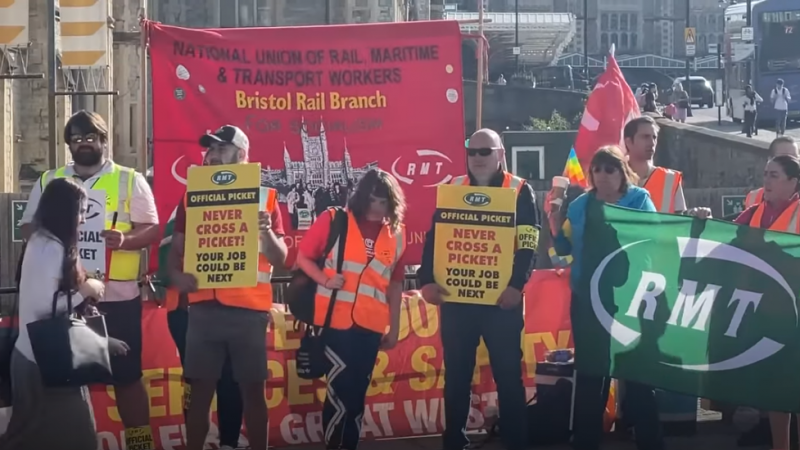“Until the government unshackle Network Rail and the train operating companies, it is not going to be possible for a negotiated settlement to be agreed,' says union boss Mick Lynch.

The second of three national rail strikes is now underway.
On June 22, RMT claimed transport secretary Grant Shapps was refusing to allow Network Rail to “withdraw their letter threatening redundancy for 2,900 of our members.”
National Union of Rail, Maritime and Transport Workers (RMT) general secretary, Mick Lynch, blamed Shapps for the failure of the talks. “Grant Shapps has wrecked these negotiations by not allowing Network Rail to withdraw their letter threatening redundancy for 2,900 of our members,” he said.
“Until the government unshackle Network Rail and the train operating companies, it is not going to be possible for a negotiated settlement to be agreed.
“We will continue with our industrial campaign until we get a negotiated settlement that delivers job security and a pay rise for our members that deals with the escalating cost of living crisis,” Lynch added.
Compulsory redundancies
In a letter to RMT on June 20, Network Rail gave notice that it would initiate a formal process that would allow 1,800 redundancies from July 1. The employer added it would incorporate compulsory redundancies if necessary.
RMT has rejected a pay offer from Network Rail and train operators worth up to 3%. The union has indicated it wants a pay rise offer representative of a cost of living settlement that is in-line with inflation, which hit 9.1% in May, its highest level in 40 years.
The transport secretary says RMT’s claims that the government is “wrecking negotiations” is “a total lie,” adding that the union was solely to blame for the “massive disruption.”
Survey shows majority support the strikes
As negotiations become increasingly fraught and millions of passengers’ face travel disruption, a survey out this week found that the majority of people in Britain support this week’s walkouts.
The poll conducted by Savanta ComRes, found that the majority of voters (58%) think the rail strikes are justified, and two-thirds believe the government has not done enough to prevent the industrial action.
Much of the anger being vented on the picket lines is over the pay of railway bosses, who take home huge salaries.
Network Rail boss earns 20 times wage of rail guard
Reports show Network Rail boss Andrew Haines earned an annual salary of almost £600,000 in 2021. This compares to the salaries of many of the striking train guards, who earn £30,000 a year.
GMT boss Mick Lynch says railway chiefs are “taking home millions of pounds a year”, claiming firms coined it in during the pandemic, along with £16 billion of government subsidies.
Commenting on the profits rail companies are making, backed up by government policy, Lynch said: “RMT members are leading the way for all workers who are sick and tired of having their pay and conditions slashed by a mixture of big business profits and government policy.”
“The railways made £500 million of profit last year, when fares and passengers were at an all-time low. And if workers’ wages don’t go up it means a transfer of wealth from the poor to the rich.”
The RMT union boss has won adulation this week from many for his performances defending the strikes against the corporate media.
Gabrielle Pickard-Whitehead is a contributing editor to Left Foot Forward
To reach hundreds of thousands of new readers and to make the biggest impact we can in the next general election, we need to grow our donor base substantially.
That's why in 2024, we are seeking to generate 150 additional regular donors to support Left Foot Forward's work.
We still need another 124 people to donate to hit the target. You can help. Donate today.



